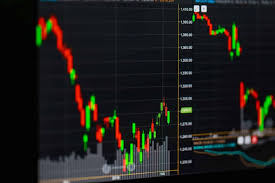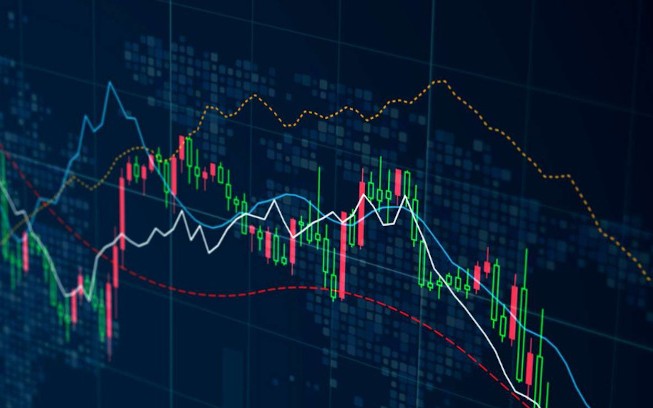
In the fast-paced world of forex trading, mastering the basics is just the beginning. As traders aim to elevate their skills and achieve consistent profitability, advanced forex trading Trading FX Broker offers insights into advanced trading strategies and techniques that can lead to success. In this article, we will explore various advanced forex trading concepts, including technical analysis, risk management, and market psychology, to equip you with the tools necessary for high-level trading.
Understanding Technical Analysis
At the heart of advanced forex trading is technical analysis, which involves analyzing historical price data to predict future movements. Traders use various tools and indicators to interpret market trends and make informed decisions.
- Chart Patterns: Advanced traders often rely on chart patterns such as head and shoulders, triangles, and flags to detect potential price reversals or continuations. Understanding these patterns can provide traders with deeper insights into market dynamics.
- Indicators: Technical indicators like Moving Averages, RSI (Relative Strength Index), and MACD (Moving Average Convergence Divergence) are crucial in advanced trading. These tools help traders identify entry and exit points as well as overall market strength.
- Price Action Trading: Some advanced traders prefer to use price action rather than relying purely on indicators. This method involves understanding market structure and analyzing price movements without the clutter of indicators.

Risk Management: The Cornerstone of Long-term Success
One of the most critical aspects of forex trading is effective risk management. Advanced traders know that preserving capital is essential for long-term survival in the market.
- Position Sizing: Determining the appropriate position size for each trade is vital. Advanced traders often use the Kelly Criterion or other formulas to calculate the optimal bet size based on their trading capital and risk tolerance.
- Stop-Loss and Take-Profit Orders: Advanced traders use stop-loss and take-profit orders to manage their trades proactively. Placing these orders effectively can mitigate losses and secure profits.
- Diversification: Another strategy employed by seasoned traders is diversification. By spreading trades across various currency pairs, traders can reduce the risk associated with any single position.

Market Psychology: The Unseen Influencer
Understanding market psychology is crucial for advanced forex traders. Market behavior often stems from human emotions, and grasping this psychological aspect can provide a competitive edge.
- Fear and Greed: Two of the most influential emotions in trading are fear and greed. While fear can lead to missed opportunities due to hesitation, greed can result in holding onto losing trades longer than necessary. Successful traders develop the discipline to manage these emotions.
- The Market Cycle: Recognizing market cycles—accumulation, uptrend, distribution, and downtrend—helps traders understand when to enter or exit positions. Awareness of where the market is in its cycle can provide critical insights.
- Sentiment Analysis: Advanced traders often analyze market sentiment by looking at the behavior of retail traders, major financial institutions, and news reports. Understanding sentiment can help traders predict potential market moves.
Algorithmic and High-Frequency Trading
With the rise of technology, many advanced traders are now exploring algorithmic trading and high-frequency trading (HFT). These methods rely on computer algorithms to execute trades at high speeds and volumes.
- Algorithmic Trading: This involves programming a trading strategy into a system that automates buy and sell decisions based on predetermined criteria. This can minimize emotional decision-making and ensure a strategy is followed consistently.
- High-Frequency Trading: HFT is a subset of algorithmic trading that focuses on executing a high volume of orders at extremely fast speeds, often within milliseconds. HFT requires advanced technology and infrastructure but can be highly profitable.
- Backtesting Strategies: Before deploying any algorithmic trading strategy, it is essential to backtest it against historical data. This practice helps traders identify its effectiveness and make necessary adjustments.
Continuous Learning and Improvement
In the ever-evolving forex market, continuous education and adaptation are vital. Advanced traders often invest in their learning by reading books, attending seminars, and participating in online courses.
- Stay Updated: The forex market is influenced by global events, economic indicators, and geopolitical developments. Staying updated on these factors is critical for making informed trading decisions.
- Journaling Trades: Keeping a trading journal helps advanced traders analyze their decisions and outcomes. This practice leads to reflections on what strategies worked, what didn’t, and how emotional responses impacted trades.
- Networking with Other Traders: Joining trading communities and forums allows traders to share experiences, gain insights, and learn from others. Networking can lead to the discovery of new strategies and tools.
Conclusion
Advanced forex trading requires a blend of knowledge, discipline, and psychological awareness. By mastering technical analysis, implementing robust risk management strategies, understanding market psychology, and leveraging modern technological tools, traders can significantly enhance their chances of success. Continuous learning and adaptation are essential in this dynamic environment. As you refine your trading strategies, remember that consistent practice and the willingness to learn from both successes and failures will ultimately define your journey as an advanced forex trader.

